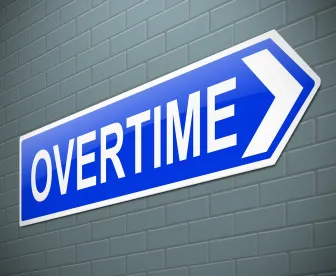Affirming the dismissal of wage and hour claims against “big box” retailer Lowe’s, the Fourth Circuit Court of Appeals agreed that company bonuses, provided to employees following 2018 revisions to federal tax law, were rightly excluded from the “regular rate” used to calculate overtime compensation under the Fair Labor Standards Act (FLSA). The Fourth Circuit further agreed that paid leave provided to employees for time spent on voluntary charitable activities likewise was properly excluded from the regular rate calculation. McPhee v. Lowe’s Home Centers, 2021 U.S. App. LEXIS 18076 (4th Cir. June 17, 2021). The Fourth Circuit has jurisdiction over the federal courts in Maryland, North Carolina, South Carolina, Virginia, and West Virginia.
Generally, the FLSA requires that employers compensate their employees who work in excess of forty hours per week at a rate one and a half times the regular rate at which they are employed. Under the Act, the regular rate “include(s) all remuneration for employment paid to, or on behalf of, the employee,” with some specifically listed exceptions. One such exception is discretionary bonuses, that is, bonuses for which “the employer [] retain[s] discretion both as to the fact of payment and as to the amount until a time quite close to the end of the period for which the bonus is paid.” Another exception is “sums paid as gifts; payments in the nature of gifts made at Christmas time or on other special occasions, as a reward for service, the amounts of which are not measured by or dependent on hours worked, production, or efficiency.” 29 U.S.C. §§ 207(e)(1) & (3).
Beginning in 2016, Lowe’s implemented the “Give Back Time” policy, under which eligible employees are paid at 100% of their hourly base rate of pay for up to eight annual hours of time volunteering with the charitable organization(s) of their choice. That policy expressly provides that the time will not be used in calculating overtime hours. Participation in the program is strictly voluntary and while the company does impose some limitations on eligible charities, it does not require that employees volunteer for any specific charity.
Additionally, in early 2018 Lowe’s announced that, as a result of federal tax reforms (i.e., the Tax Cuts and Jobs Act of 2017), it would pay each of its employees a bonus, ranging from $75 to $1000 and depending solely on full-time or part-time status and years of service. Those bonuses were paid in mid-February 2018, approximately two weeks after the bonus announcement was first made, and were not included in the regular rate calculation for the pay period in which they were made. Several employees filed suit, claiming that Lowe’s improperly excluded from the regular rate calculation – and therefore from their overtime pay – both the compensation provided under the Give Back Time policy and for the February 2018 bonuses. The district court dismissed the claims, the employees appealed, and the Fourth Circuit affirmed the dismissal.
First, the Court of Appeals concluded that the tax-reform bonuses properly were excluded as either gifts or discretionary bonuses. The bonuses were given in honor of a special occasion, were not made pursuant to a contract or other agreement, were not based upon the hours or wages of the employees, and were not so substantial as to have been relied upon by the employees. On the contrary, the only basis for an employee’s bonus were years of service and status as either full- or part-time. The Court rejected the argument that the bonuses were non-discretionary retention bonuses, given the brief (two-week) period between the announcement of the bonuses and their payment and the lack of any allegation that a particular reason existed to retain employees during this time. The Fourth Circuit likewise rejected the employees’ contention that the tax reform wasn’t a “special” occasion, adding that the law does not in fact even require there to be such an occasion, as the regulation provides Christmas or other “special occasions” as merely examples of when such a bonus might be paid.
Next, the Court of Appeals agreed that the compensation provided for employee participation in the Give Back Time program likewise was excludable from the regular rate calculation. Rejecting the employees’ contention that this claim should not have been dismissed because they pled that the time spent in the program was “work,” the Court of Appeals noted that work has been defined as “physical or mental exertion . . . controlled or required by the employer and pursued necessarily and primarily for the benefit of the employer and his business.” Here, the employees had not pled any facts suggesting that Lowe’s, as opposed to the charitable organization, was the primary beneficiary of the time spent by the employees in the program. In addition, Lowe’s neither required participation in the program nor determined how long or for whom the employees would donate their time. Instead, this time was comparable to the examples of non-work time set forth in the regulations, such as volunteering as a first responder and donating blood.




 />i
/>i

